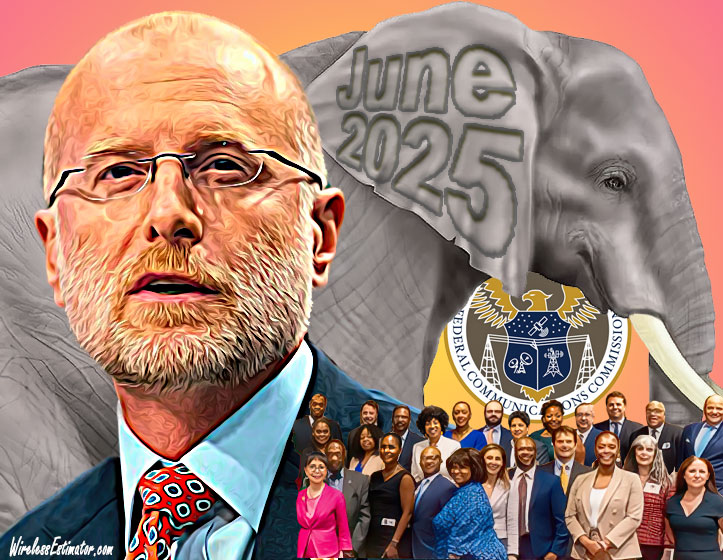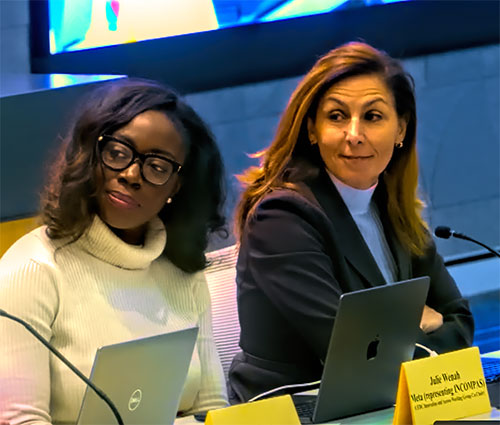
Despite the elephant taking up space, the Communications Equity and Diversity Council—an advisory group to the FCC—allowed room for a two-year charter renewal pitch at Friday’s meeting.
President-elect Donald Trump has appointed Brendan Carr, the senior Republican commissioner of the Federal Communications Commission (FCC), to serve as the agency’s chairman in his forthcoming administration.
Carr, who has been an FCC Commissioner since 2017, said the agency will end its promotion of Diversity, Equity, and Inclusion (DEI) next year. Last month, he criticized the FCC’s budget for 2025, which prioritized DEI.
“The FCC’s most recent budget request said that promoting DEI was the agency’s second-highest strategic goal. Starting next year, the FCC will end its promotion of DEI,” Carr wrote on X.
Knowing that the FCC will no longer consider DEI a key strategy, members at Friday’s Communications Equity and Diversity Council (CEDC) meeting promoted the group’s important role in supporting the FCC’s efforts to ensure everyone has access to communications and technological resources.
Although their last meeting of the year is typically a recap of the year’s progress, the previous week’s two-hour meeting focused on the possible changes that will come with the new administration.
The elephant makes two appearances at the FCC
In his welcoming remarks, FCC Chairperson Jessica Rosenworcel’s Deputy Chief of Staff, Sanford Williams, said the reality is there is a “metaphorical elephant in the room.”
“Change is coming to the government and the FCC in January. But this change does not negate your importance, work, or our need to help those who could use a helping hand,” said Williams. We must continue to work to ensure fairness for all.”
CEDC Chair Heather Gate also exercised the mammal metaphor.
“So, let’s talk about the elephant in the room. We are in a period where we are looking forward to a transition, but this is not new to us. Some of us have already participated in transitions,” she said.
She noted that she had the opportunity to serve in a leadership position under Chairman Aji Pai in 2017 during the Trump administration.
“Under Chairman Pai, the CEDC was chartered as the advisory committee on diversity and digital empowerment and was charged with providing recommendations to the FCC on how to empower disadvantaged communities and accelerate the entry of small businesses,” said Gate.
The CEDC’s charter is renewed every two years and is scheduled to renew in June. This biennial renewal process ensures that the CEDC continues its mission to advance equity and diversity in the communications industry.
While the CEDC plays a significant role in shaping discussions and offering policy guidance, it does not have the authority to make or enforce rules. As the governing agency, the FCC reviews and decides whether to act upon the council’s recommendations when formulating or amending its rules and regulations.
The CEDC was established in 2017 under the Advisory Committee on Diversity and Digital Empowerment (ACDDE). In 2021, Rosenworcel re-chartered the committee, expanding its mission and renaming it to the CEDC.
Six months to go, and hoping for another 24

Julie Wenah left, and Leticia Latino Van-Splunteren
Gate expressed her appreciation to Julie Wenah and Leticia Latino Van-Splunteren, the newly appointed co-chairs of the CEDC’s Innovation and Access Working Group.
“Your combined expertise, vision, and dedication to this work embody what we need to be focusing on right now in this crucial moment, and I am excited to witness your impact on the CEDC and the country as a whole,” said Gate.
“Leticia and I are excited about the work ahead and look forward to guidance from the incoming administration,” explained Wenah.
“It’s really exciting to see in the short period we have had the power of brainstorming, our group has accomplished, and we can see deliverables that are not that hard to get in the six months we have left,” said Van-Splunteren.
They and other CEDC members and working groups are hopefully looking towards extending their accomplishments for another 30 months.


















